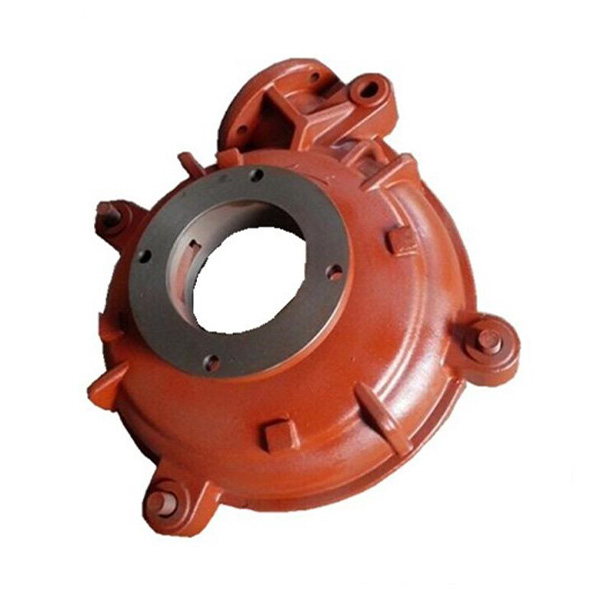Mobile:+86-311-808-126-83
Email:info@ydcastings.com
English
Enclosed Impeller Design for Enhanced Fluid Dynamics and Efficiency in Pump Systems
The Impact of Enclosed Impellers on Pump Efficiency and Performance
In the world of fluid dynamics and engineering, the design of pump components is pivotal for maximizing efficiency and performance. One such critical component is the impeller, which plays a fundamental role in dictating the operational characteristics of a pump. The enclosed impeller, in particular, has gained significant attention due to its advantages in a variety of applications. This article explores the mechanics, benefits, and applications of enclosed impellers, highlighting their importance in modern engineering practices.
An enclosed impeller is characterized by its design, which integrates both the front and rear shrouds around the blades, creating a sealed environment. This design contrasts with open impellers, which lack these protective shrouds. The enclosed structure serves multiple purposes, including reducing the likelihood of cavitation, improving efficiency by minimizing fluid loss, and enhancing operational versatility in handling various types of fluids.
One of the standout advantages of enclosed impellers is their efficiency in fluid handling. The shrouded design helps maintain a consistent flow of fluid, which is crucial for pumps operating under varying conditions. By containing the fluid effectively, enclosed impellers minimize turbulence and energy losses typically associated with open impellers. This advantage makes them particularly effective for high-head applications, where performance demands are at their peak.
Moreover, enclosed impellers are known for their ability to handle abrasive and viscous fluids. The shrouded blades reduce wear and tear when exposed to such challenging conditions, significantly extending the lifespan of the impeller. This durability is essential for industries such as mining, wastewater treatment, and chemical processing, where equipment is frequently subjected to harsh operating environments. By reducing maintenance needs and downtime, enclosed impellers contribute to more efficient operational budgets.
enclosed impeller

Another critical aspect of enclosed impellers is their ability to manage cavitation—a phenomenon where vapor bubbles form and collapse within the fluid, leading to potential damage and performance degradation. The design of an enclosed impeller helps prevent cavitation by maintaining higher suction pressures. This characteristic is particularly beneficial for applications where fluctuating pressures can lead to instabilities, ensuring that the pump operates reliably under various conditions.
In terms of energy efficiency, enclosed impellers often outperform their open counterparts. The design ensures that energy is transferred more effectively from the motor to the fluid, reducing wasted energy. This increased efficiency translates not only into cost savings but also aligns with growing environmental sustainability initiatives. As industries push towards reducing their carbon footprints, the choice of using enclosed impellers can contribute positively to overall energy conservation efforts.
Enclosed impellers find diverse applications across various sectors. In the water and wastewater industry, they are frequently used in centrifugal pumps to enhance the movement of fluids efficiently. In chemical processing, their robustness against corrosive materials makes them ideal for transporting harsh chemicals. Additionally, in HVAC systems, enclosed impellers are used in fan applications to optimize airflow while minimizing noise levels.
Despite their numerous advantages, it is essential to acknowledge that the choice between enclosed and open impellers is not always straightforward. The selection often depends on the specific application requirements, including the type of fluid being handled, the operating conditions, and the desired performance characteristics. Engineers must consider these factors carefully to ensure optimal performance and efficiency.
In conclusion, enclosed impellers play a crucial role in enhancing pump performance and efficiency across various industries. Their ability to minimize energy losses, handle abrasive fluids, and prevent cavitation makes them a preferred choice in many engineering applications. As industries continue to focus on efficiency and sustainability, the relevance of enclosed impellers is likely to grow, shaping the future of fluid handling solutions. Adapting and innovating around these technologies will allow engineers to meet the challenges posed by evolving demands in fluid dynamics effectively.
-
Materials Used in Manufacturing Cap End Pipe FittingsNewsNov.24,2025
-
Material Properties of CF8M CastingNewsNov.24,2025
-
How to Inspect Pump Cap Ends for DamageNewsNov.21,2025
-
Backward Curved Impeller – Efficient Airflow Solutions for Industry | YD CastingsNewsNov.21,2025
-
Automobile Water Pump - Efficient, Quiet, Durable & ElectricNewsNov.21,2025
-
Impeller for Pumps – High-Efficiency, Durable, OEM-ReadyNewsNov.21,2025











